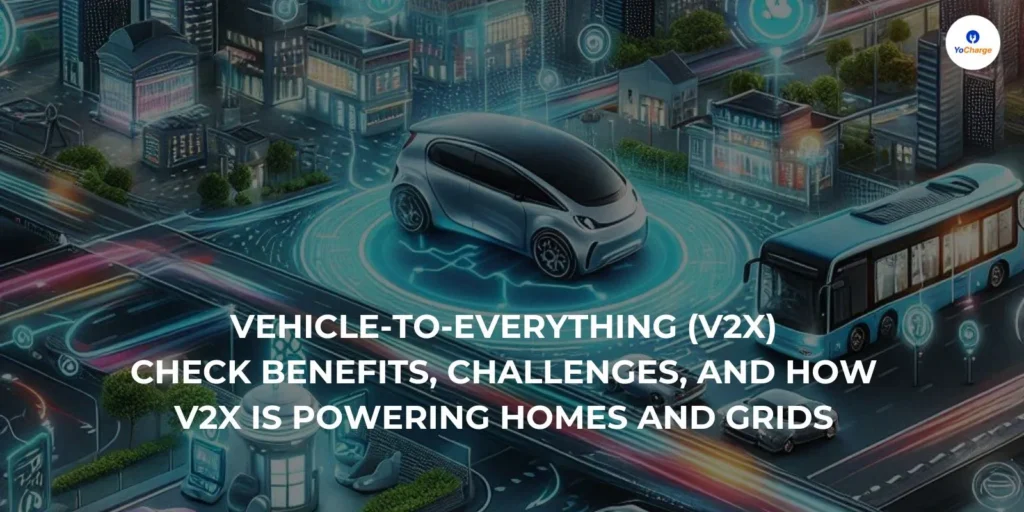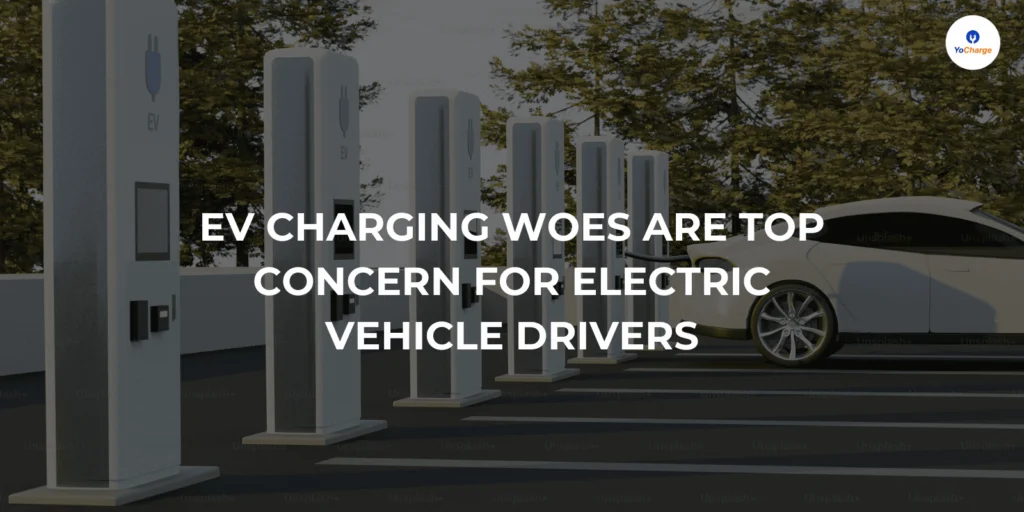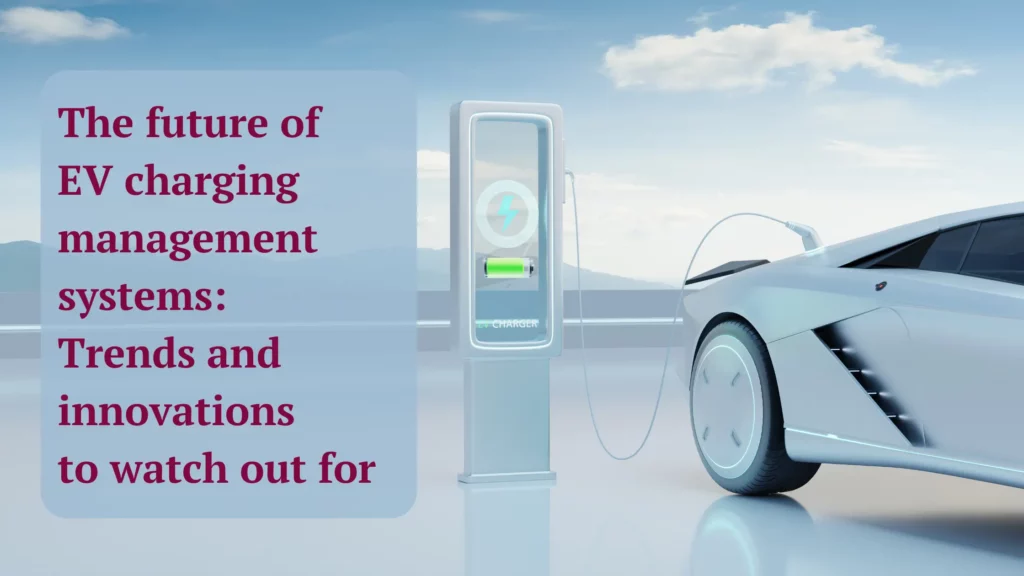
Electric vehicles (EVs) have been around for a while, but they have recently gained immense popularity due to the need for cleaner and greener energy sources. As more people switch to EVs, there has been a corresponding increase in demand for efficient and reliable EV charging management systems. In this article, we will take a closer look at the future of EV charging management systems and the trends and innovations that we can expect to see in the coming years.
EV Charging Management Systems
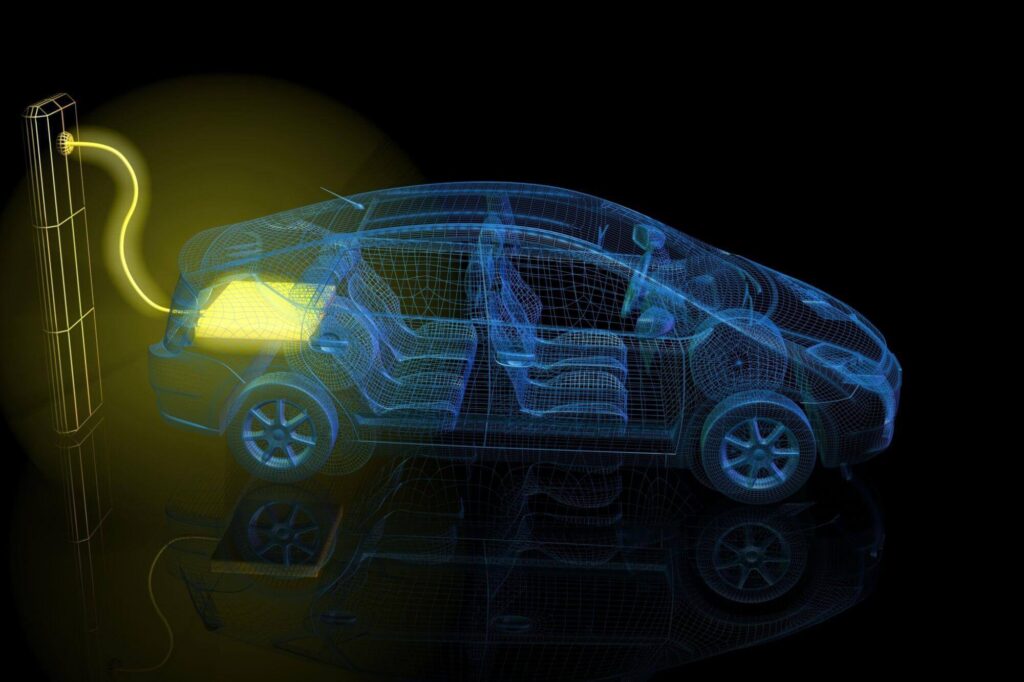
EV charging management systems are essential components that monitor, control, and optimize the charging of electric vehicles. These systems ensure the smooth functioning of charging infrastructure by providing real-time data on charging station usage, energy consumption, and billing information.
EV charging management systems are expected to become more advanced and sophisticated in the coming years, enabling EVs to charge more efficiently and effectively.
TRENDS & INNOVATIONS
The Future of EV Charging Management Systems
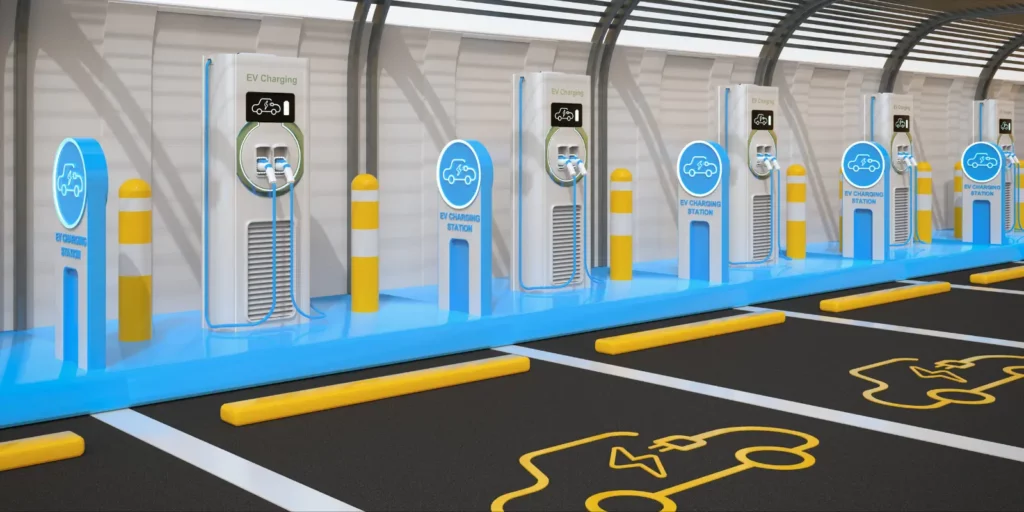
1. Increased Connectivity
One of the significant trends in the future of EV charging management systems is increased connectivity. With the advent of the Internet of Things (IoT), charging stations will be equipped with sensors and communication technology that can transmit data to a central system. This will enable operators to monitor charging station usage, track energy consumption, and manage billing in real-time. Increased connectivity will make it easier to track energy consumption and provide better billing and payment options for EV charging.
2. Wireless Charging
Wireless charging is another trend that we can expect to see in the future of EV charging management systems. Wireless EV charging eliminates physical connections between EVs and charging stations, allowing for seamless charging by parking the vehicle over a charging pad. This innovative solution enhances user convenience and minimizes cable and plug clutter.
Wireless ev charging systems use magnetic resonance technology to transmit power to the EV without the need for physical contact. This technology is still in its early stages, but it has the potential to revolutionize the way we charge EVs. Wireless charging would make charging more convenient for EV owners and eliminate the need for charging cables.
3. Smart Charging
Smart charging is another trend that is expected to gain traction in the coming years. Smart charging systems use artificial intelligence (AI) and machine learning algorithms to optimize charging times, reduce energy consumption, and manage the grid’s load. These systems can also be integrated with renewable energy sources such as solar power to provide sustainable and efficient charging solutions. Smart charging systems will help to reduce the load on the grid by using energy during off-peak hours when it is more abundant.
4. Battery Swapping
Battery swapping is another innovation that is gaining traction in the EV industry. This technology enables EV owners to swap their depleted batteries with fully charged ones at designated charging stations. This technology offers a faster and more convenient way of charging EVs, making it an attractive option for commercial fleets and other high-usage vehicles. Battery swapping would reduce the time it takes to charge an EV and eliminate the need for EV owners to wait for their batteries to charge.
5. Bi-Directional Charging
Bi-directional EV charging is another innovation that has the potential to change the way we think about charging EVs. This technology enables EVs to not only charge their batteries but also discharge them to the grid during peak demand periods. This not only helps to balance the load on the grid but also enables EV owners to earn money by selling their excess energy back to the grid. Bi-directional charging would enable EV owners to use their vehicles as a source of income by selling excess energy back to the grid.
EV charging station management systems enable bidirectional power flow, allowing electric vehicles to draw energy from and feed excess energy back into the grid. V2G technology stabilizes the grid, integrates renewable energy sources, and optimizes energy distribution.
5. Solar Powered EV Charging

Integrating solar panels into EV charging stations allows them to generate clean energy to power electric vehicles. This not only reduces dependence on the grid but also promotes the use of renewable energy sources, making EV charging more sustainable.
Solar-assisted EV chargers combine solar power and grid electricity to charge electric vehicles. They use solar energy during the day and switch to the grid when there’s not enough sunlight. This hybrid system boosts charging efficiency and reduces carbon emissions, making it an environmentally friendly solution.
Everything you need to know about EV Charging Management Software
Read More
EV Charging Management Systems as a Powerful Tool for Creating Sustainable Cities
By integrating EV Charging Management Systems into urban planning and development, cities can accomplish the following and move closer to their vision of sustainable cities:
- Smart City Technology Integration: Integrating EV charging infrastructure into smart city networks enables real-time data collection, remote monitoring, and advanced analytics. This integration improves charging station usage, enhances energy distribution, and boosts traffic management capabilities.
- Promoting Sustainable Energy Sources for Cities: EV Charging Management Systems have the ability to harness renewable energy sources, such as solar and wind power, to charge electric vehicles. By doing so, these systems reduce dependence on fossil fuels and assist cities in transitioning towards greener and more sustainable energy solutions.
- Collaborative Charging Networks: EV Charging Management Systems make it possible for EV owners to share charging resources and infrastructure, creating collaborative charging networks. This allows for the efficient use of charging stations, reduces infrastructure costs, and encourages sustainable practices driven by the community.
- Urban Planning and Development: EV charging infrastructure can be strategically deployed to support urban development plans, ensuring electric vehicle owners have convenient access to charging stations. This promotes EV adoption, reduces air pollution, and creates a cleaner and healthier urban environment.
The Latest Trends & Innovations in EV Charging Technology
The EV charging landscape is evolving rapidly, with new trends and innovations constantly emerging. Here are some notable advancements to watch out for:
- Mobile App for Electric Vehicles: Mobile apps for EV owners provide real-time information on nearby charging stations, including availability, pricing, and charging status. They also offer features like remote charging activation and easy payment integration, making EV charging more user-friendly.
- Blockchain Technology in Transportation: Blockchain technology is great for managing EV charging because it ensures safe and transparent transactions. It lets users securely verify their identities, give permissions, and pay for charging services. It also enables people to trade energy directly with each other and manage energy in a decentralized way.
- Predictive Analytics in Smart Cities: Advanced analytics and AI enhance the efficiency of EV charging operations by analyzing data on energy demand, user behavior, and grid conditions. This optimization includes predictive charging, load balancing, and dynamic pricing, which results in effective energy utilization and cost efficiency.
- Fleet Management Systems: As the adoption of electric fleets increases, EV fleet management systems are becoming essential for efficient operations. These systems enable fleet operators to monitor their electric vehicle’s charging status, location, and performance in real-time. They also provide insights on energy consumption, maintenance needs, and optimal charging schedules, improving fleet efficiency and reducing operational costs.
Conclusion
In conclusion, the future of EV charging management systems is bright, with a range of innovative technologies and trends that will revolutionize the way we charge electric vehicles. Increased connectivity, wireless charging, smart charging, battery swapping, and bi-directional charging are just a few of the developments that are set to transform the EV charging landscape in the coming years.
EV Charging Management Systems are leading the way in revolutionizing the charging process for electric vehicles. Advancements like wireless charging, solar integration, and smart city integration are propelling sustainable transportation and creating greener, smarter cities.
As more people switch to EVs, the industry must continue to embrace these trends and innovations to provide efficient, reliable, and sustainable charging solutions for all. The future of EVs is electric, and the future of EV charging management systems is set to be both exciting and transformative.
